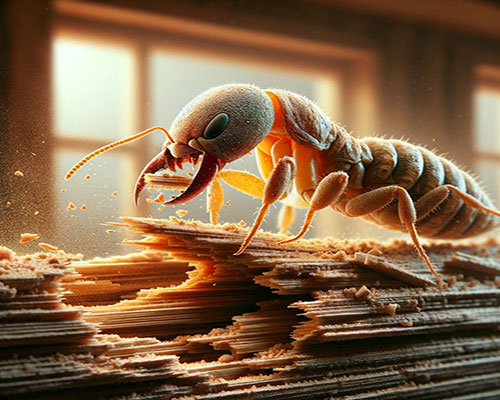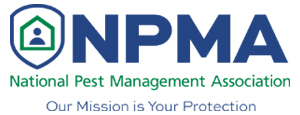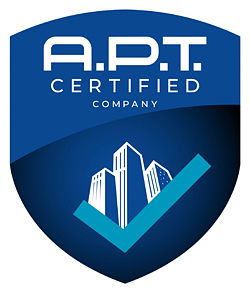Termite Control, Treatment, Inspection & Prevention
Battling Termites: Protecting Houston, TX Homes from Eastern Subterranean, Formosan, and Drywood Termites

Houston, Texas, with its warm and humid climate, is a prime location for various termite species, including Eastern subterranean, Formosan, and drywood termites. These pests can wreak havoc on homes, causing extensive damage to wooden structures and often remaining undetected until significant harm is done.
Understanding Termites in Houston
Termites are highly organized insects that thrive in Houston's climate. Three common species found in the area are Eastern subterranean, Formosan, and drywood termites, each with distinct characteristics and behaviors.
- Eastern Subterranean Termites (Reticulitermes flavipes):
- These termites live in underground colonies and build mud tubes to access their food sources.
- They primarily feed on cellulose material, such as wood, and can cause significant damage to homes and structures.
- Signs of infestation include mud tubes, swarmers, damaged wood, frass, and sagging floors or ceilings.
- Formosan Termites (Coptotermes formosanus):
- Formosan termites are particularly aggressive and can cause rapid and extensive damage to wooden structures.
- They form large colonies that can include millions of individuals and are known for their ability to establish secondary nests above ground.
- Signs of infestation are similar to Eastern subterranean termites but may include larger and more elaborate mud tubes.
- Drywood Termites (Incisitermes spp.):
- Unlike subterranean termites, drywood termites do not require contact with soil and can infest dry wood directly.
- They often enter homes through cracks and openings and establish colonies within wooden structures.
- Signs of infestation include piles of fecal pellets (frass), kick-out holes, and hollow-sounding wood.
Prevention and Treatment Strategies
Protecting Houston homes from termite infestations requires a proactive approach:
- Moisture Control: Eliminate sources of excess moisture around the home to deter Eastern subterranean and Formosan termites.
- Wood Treatment: Apply termite-resistant treatments to wooden structures and use termite-resistant materials during construction.
- Regular Inspections: Schedule periodic inspections by trained professionals to detect termite activity early.
- Chemical Treatments: In cases of infestation, consider using chemical treatments such as liquid termiticides, bait systems, or fumigation, depending on the termite species and extent of infestation.
Eastern subterranean, Formosan, and drywood termites pose significant threats to homes in Houston, TX, due to their destructive capabilities. Homeowners must remain vigilant for signs of infestation and take proactive measures to prevent and treat termite activity effectively. By understanding the habits and behaviors of these pests and implementing appropriate control strategies, homeowners can protect their properties from costly termite damage.


.jpg)



